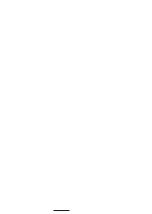
5
LiVELLO 3: aUTOTUning
The level 3 is accessible only with the password 8.5 and if the unit uses remote air sensor. With the use of internal sensor it is
not possible to use the autotuning function.
This function allows the calculation of parameters Bp, Ti automatically by doing an on/off cycle.
Before doing such a cycle, set the setpoint for autotuning.
The setpoint for autotuning in 2 pipe system can be done adding or substracting the value of parameter oFA (offset for autotu-
ning) to the setpoint (main setpoint if the contact ECO is opened or economy setpoint if the contact ECO is closed) according to
operating season (see parameters).
In 4 pipe system autotuning is done on setpoint (main setpoint if the contact ECO is opened or economy setpoint if the contact
ECO is closed).
LeA
Level for autotuning:
During the autotuning cycle the regulator outputs 0 V or the voltage defined by parameter LEA. The selection is
done
automatically considering the season working and temperature from setpoint:
- in heating if temperature is lower than setpoint, the output is equal to LEA Volt.
- in heating if temperature is upper than setpoint, the output is equal to 0 Volt.
- in cooling if temperature is upper than setpoint, the output is equal to LEA Volt.
- in cooling if temperature is lower than setpoint, the output is equal to 0 Volt.
In 2 pipe systems, the active output during autotuning is the 0..10 V single output.
In 4 pipe systems, the active output during autotuning is the 0..10 V heating output if at the beginning of autotuning
cycle temperature is lower than setpoint. On this case autotuning is done in heating. If temperature is upper than the
setpoint at the beginning of the autotuning cycle, the active 0..10 V output is the cooling output. The autotuning is
done on this case in cooling.
Choose a level that avoid high oscillations.
Setting range:
0
...
10,0
V
default value:
5,0
V
oFA
Offset for autotuning: (it appears only for 2 pipe systems)
ECO opened and heating mode: set autotune = SEt - oFA
ECO opened and cooling mode: set autotune = SEt + oFA
ECO closed and heating mode: set autotune = SEo - oFA
ECO closed and cooling mode: set autotune = SEo + oFA
Setting range:
0
...
5,0
°C
default value:
1,0
°C
autotuning in 2 pipe
system: heating
autotuning in 2 pipe sy-
stems: cooling
autotuning in 4 pipe
systems
AUt
autotuning start:
Setting the paramerter to
YES
, the autotuning cycle starts at once. During autotuning cycle it is not possible accessing
to setpoint and others parameters. So before starting the cycle, verify parameters are correctly set. If they are not set
correctly it is possible to stop the cycle inserting the password 8.5 and inserting
no
to parameter
AU
t
or by powering
off and on the unit.
During autotuning cycle the display alternates the indication of temperature and one of the following message:
AU
t
:initial phase of autotuning.
A
t1
:phase 1 of autotuning cycle.
A
t2
:phase 2 of autotuning cycle.
A
t3
:phase 3 of autotuning cycle.
At the end of autotuning cycle the display alternates one of the following messages and temperature:
E
nd
:autotuning cycle ended. In 2 pipe system proportional band and integral time are calculated. In 4 pipe system












